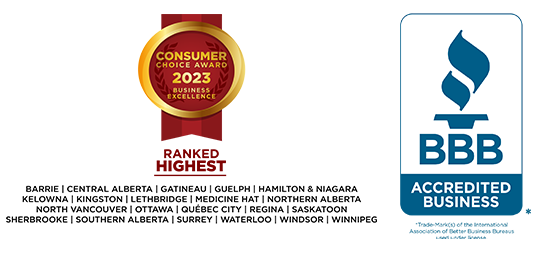Life After Debt Should I Get Credit Again
Now that you’ve completed your Bankruptcy or Consumer Proposal, you may be considering getting credit again. Remember, credit is merely one tool of many in your financial toolbox and many people live plentiful, wealthy and happy lives without it. It is by no means necessary to rebuild your credit after an insolvency proceeding – if you don’t want to.

However, if this is something you’re deeply curious about, there are several factors you’ll need to consider. These will determine whether you can safely manage your credit, how it will help you on your financial journey, potential alternatives to achieve the same goal and if you’re truly ready to apply.
What are Your Current and Future Income Expectations?
An honest appraisal of your income can quickly reveal whether credit will contribute to your financial life or potentially harm it. Some questions you’ll want to ask include:
- Do I earn enough after taxes to pay all my bills and living expenses?
- Does my household have one or multiple incomes?
- Do I expect my income situation to change in the near to mid future (e.g. retirement, new job)?
- Do I have enough savings? Do I have any savings?
If you are retired, on a disability pension or have limited income with no potential for higher future earnings, a credit card or a line of credit is probably not affordable for you. In fact, if your income places you at or below the poverty line in Canada – approximately $22,000 in 2017 – you simply cannot afford credit at all.
Remember, having credit is a choice. But if your financial circumstances don’t align, it may become the choice between paying our rent or bills and paying off an impulsive credit card purchase you made last month. When deciding whether this is right for you, consider how you’ll manage your payments if spending gets out of control – the less wiggle room you have, the less appropriate credit is right now.
What is Your Age and Lifestyle?
Depending on your age and lifestyle, pursuing a better credit rating could be more hindrance than help.
If you’re nearing or in retirement, you’ll need to consider whether your Canada Pension Plan and Old Age Security benefits are enough to offset your living expenses and credit card use. Even if you have additional investments, you’ll want to evaluate the potential tax consequences of withdrawing higher amounts from your RRSPs to offset higher credit spending.
Alternatively, if you’re in the early family planning stages, it’s important to consider how you’ll plan for all the unexpected and long-term expenses that comes with having a family. Ideally this won’t include needing credit to make ends meet and creating potential financial burdens down the road.
With that said, if you have several more working years ahead of you and progressively optimistic earning potential, credit may be a necessary steppingstone to reach your financial goals – such as buying a house or a new vehicle. Still, you’ll need to be cautious and only take on as much credit as you can afford to repay within a reasonable time frame, ideally monthly.
Why Do You Want / Need Credit?
There are as many responses to this question as there are credit card options. But it may be the most important question of all. Your answers will reveal a lot about your future credit use practices and offer clues to whether credit is necessary, you’re ready or there’s a better alternative.
Credit for Shopping Online or Reservations
It often seems like no matter what you want to do, you need a credit card to do it. However, if you want to shop online or make reservations, you don’t need a traditional credit card anymore.
First, many online vendors will now accept Visa-Debit cards. The great benefit here is the purchase funds come directly from chequing account and you can never exceed that amount. And knowing your absolute limits will keep you from overspending or impulse shopping.
Second, a reloadable pre-paid credit card issued by a bank is a convenient solution for making hotel or rental car reservations. There is no credit attached to the card and therefore no risk of going into debt. What you transfer onto the card is what you can spend – and once it’s spent it’s gone. But you can also reload the card whenever you want to.
While neither of these cards will build your credit, they will help you manage your spending without going into debt. These are convenient, sustainable and excellent tools if your credit history has been a rocky one.
Credit for Purchasing a Home or Vehicle
Rebuilding your credit for a larger purchase, such as a vehicle or a house, is only realistic if you are financially able to purchase and maintain said car or property. It will require being gainfully employed and having several years of earning potential and income growth ahead of you. Counting the costs before getting locked into an asset purchase that you cannot afford is crucial to avoiding future financial stress.
However, if you’re serious about buying a home and confident it’s something you can manage, discuss your plans with a mortgage broker or specialist. They can offer specific strategies to raise your credit profile, calculate some clear numbers in both dollars and timelines and provide a starting point to track your progress.
Credit for Just in Case
‘Just in case’ is quite possibly the most dangerous phrase in credit. No matter your income, ‘just in case’ can quickly give way to “It’s just a coffee here and there.” Or, “This is only $80… I’ll just figure out how to pay the bill later.”
Prior to your Bankruptcy or Consumer Proposal, you may have grown accustomed to having a credit card to supplement your income for those “just in case” times. But all it did was create extra strain on your budget by encouraging you to charge non-essential items now and worry about them later.
Remember how much easier it was to spend it and forget it with a credit card? Do you get that feeling with debit or cash? The long timeline on your credit card bill creates a sense of detachment from the purchase, which rarely happens with the instant ‘pain’ of paying right now.
It takes willpower to live within your means and be content with what you have. And it’s much easier to maintain that resolve without a credit card to tempt you.
Are You Ready for Credit?
If you feel like you should get credit, but notice the question, ‘am I ready for it?’ follow immediately afterward – pay attention to the hesitation.
Did misuse of credit cards get you into debt in the first place? Maybe you once told yourself you’d never get another credit card again. Reluctance to leap back into the credit pool is totally normal and positive. Ignoring your doubts could be the first slippery step toward a carbon copy of what your insolvency just solved.
Even if you feel credit is necessary to achieve future financial goals, consider whether now is the right time. Perhaps you need to keep building your confidence around money management before adding credit back into the mix.

